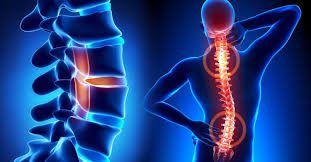Winter is the most magnificent of all seasons. From the food to the apparel to the campfire to the coffee and conversation with friends to the tranquil surroundings, everything pleases and refreshes us. During the winter, muscles get tight.
Nature poses certain dangers to human health, such as the experience of suffering, despite its many benefits. similar to how our epidermis and lips become parched when we are thirsty. Cold-induced muscle discomfort is a significant problem. Particularly susceptible are the elderly and those whose occupations require them to stand or recline for extended periods. Let’s examine an assortment of weather-related applications.
What medical conditions cause muscle discomfort?
Intense activity on a single or multiple muscles and viral infections are the two most common causes of muscular discomfort. Trauma, overuse, and emotional stress can all exacerbate muscle discomfort. The temperature has also been associated with an increase in reports of muscle pain. When the temperature outside drops, a number of people begin to experience muscle and joint discomfort. Baclofen 10mg is used to treat muscle relaxants.
Why do muscles ache when exposed to cold?
Muscles and joints may become irritated during frigid weather because of the following.
As the temperature lowers, individuals become less active and more confined to their residences. Consequently, muscles and joints become less flexible and less active. Muscles that are compromised and lack pliability can lead to injury and suffering.
Due to the combination of higher humidity, lower air pressure, and increased winds, headaches and muscular discomfort (including migraines) are common during this type of weather. Additionally, temperature fluctuations exacerbate migraines, muscle weakness, fatigue, and cold symptoms.
The fluid in joints becomes more viscous as the temperature lowers, causing the joints to stiffen. This rigidity results in painful muscles and joints.
The winter months bring on seasonal affective disorder (SAD) symptoms of depression. Due to the substantial influence that emotions have on the perception of discomfort, those with mood disorders are at risk for developing muscle issues.
5. Weak or excessively sensitive nerves can also contribute to muscle aches and pains caused by the weather.
During the winter, the decreased blood flow to the nerves exacerbates the symptoms of any preexisting nerve injury.
Muscle Soreness and Bad Weather
Weather conditions have been linked to aches and symptoms in the muscles and joints, according to research. In 1995, over 550 people reported musculoskeletal discomfort due to seasonal variations. The article states that “variations in barometric pressure” are responsible for the inconvenience. This study suggests that people with preexisting conditions such as chronic pain or arthritis would experience more distress on frigid days due to a decrease in barometric pressure.
When atmospheric pressure decreases, joint fluid and gas levels increase because air molecules and gases expand. This causes nerve stress and discomfort. In addition, during muscular spasms and arthritis, the tissues of various muscles contract and extend in different ways, resulting in rigidity and excruciating pain.
Fewer patients report experiencing severe pain when the sun and temperature are low compared to when they are high. This led researchers to the conclusion that frigid weather causes discomfort.
How can I prevent muscle soreness when the temperature drops?
The following steps should be taken to prevent muscle discomfort in frigid weather, allowing you to enjoy the season without concern for your health.
Be active and engage in physical activity
In winter, less physical activity occurs because individuals spend more time indoors. You must get up and move if you want to cease suffering from inactivity. Engage in at least 30 minutes of regular activity.
Yoga, aerobics, weight training, abdominal crunches, lunges, push-ups, and tai chi are beneficial exercises because they increase blood flow and oxygen delivery to the muscles. By retraining your muscles in this way, you can potentially increase their adaptability and decrease your pain sensitivity.
The weather is becoming warmer.
When it is chilly outside, the muscles must exert more effort to complete the same exercise that would be effortless in milder conditions. You should set up the heat in the home because being cold causes muscles to contract.
You may experience less muscle discomfort and be able to exercise more frequently as a result. A radiator, a hot bath, or additional garments can all be utilised to increase the temperature.
Take care of your physical health
Eating healthier and resting more will assist you in preserving your health. Using this method, you can strengthen your muscles and reduce muscle discomfort.
Medication
For example, muscle relaxants and painkillers are only available with a doctor’s prescription. If you suffer from muscle pain, you have two options: attempt one of several over-the-counter medications or obtain a prescription and purchase lioresal online.
Conclusion
If you also experience chest pain, fever, loss of bladder control, or paralysis in your extremities, these symptoms are indicative of a more serious condition than simple muscle discomfort and require immediate medical attention. You can also attempt pain medication, but you should consult a physician first.

